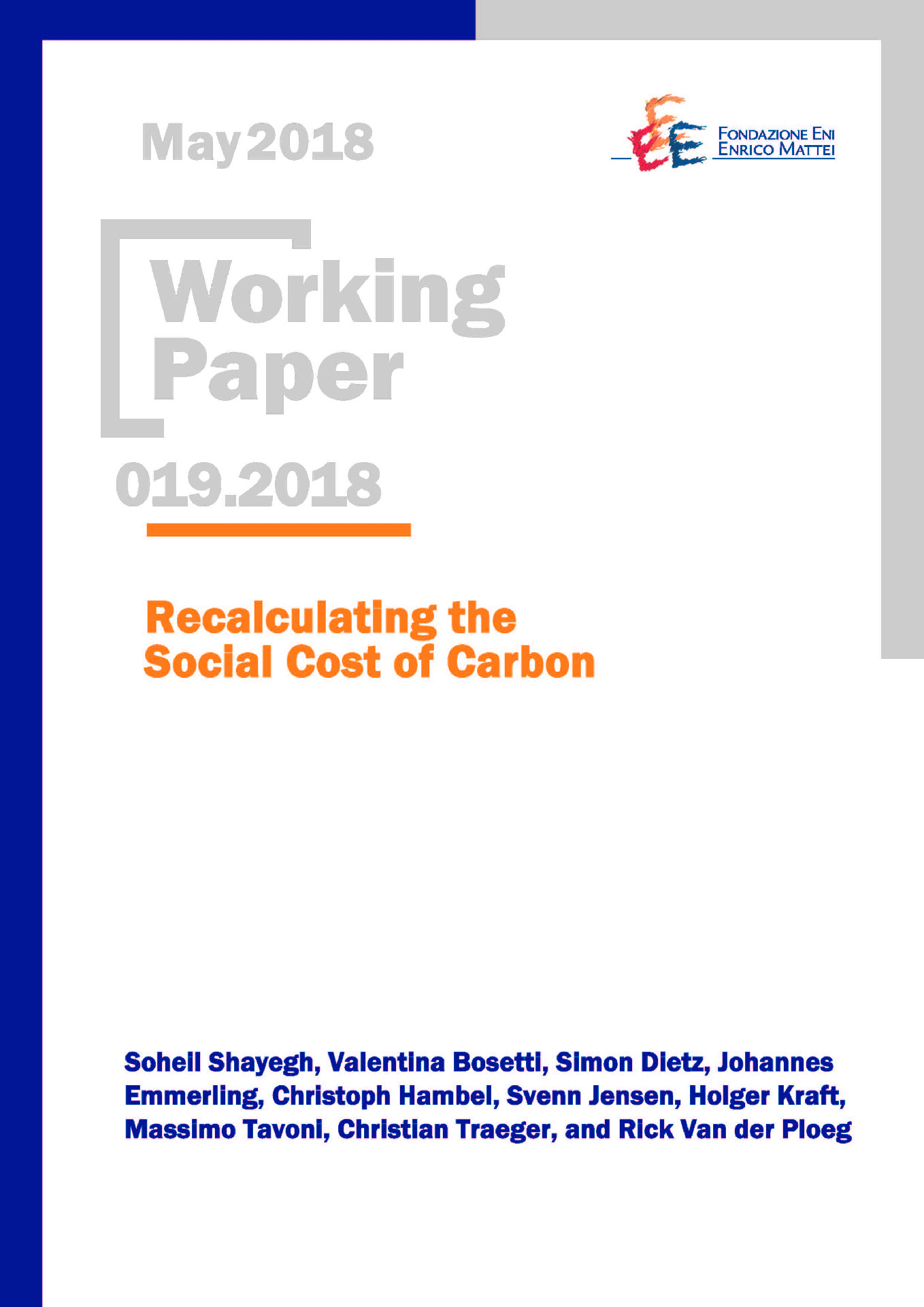Recalculating the Social Cost of Carbon

23.05.2018
Q54
Integrated Assessment Models, Climate Policy, Carbon, Uncertainty
Climate and Sustainable Innovation
Massimo Tavoni
Over the last few decades, integrated assessment models (IAM) have provided insight into the relationship between climate change, economy, and climate policies. The limitations of these models in capturing uncertainty in climate parameters, heterogeneity in damages and policies, have given rise to skepticism about the relevance of these models for policy making. IAM community needs to respond to these critics and to the new challenges posed by developments in the policy arena. New climate targets emerging from the Paris Agreement and the uncertainty about the signatories’ commitment to Nationally Determined Contributions (NDCs) are prime examples of challenges that need to be addressed in the next generation of IAMs. Given these challenges, calculating the social cost of carbon requires a new framework. This can be done by computing marginal abatement cost in cost-effective settings which provides different results than those calculated using constrained cost-benefit analysis. Here we focus on the areas where IAMs can be deployed to asses uncertainty and risk management, learning, and regional heterogeneity in climate change impacts.
***
Suggested citation: Shayegh S., V. Bosetti, S. Dietz, J. Emmerling, C. Hambel, S. Jensen, H. Kraft, M. Tavoni, C. Traeger, and R. Van der Ploeg, (2018), ‘Recalculating the Social Cost of Carbon’, Nota di Lavoro 19.2018, Milano, Italy: Fondazione Eni Enrico Mattei
